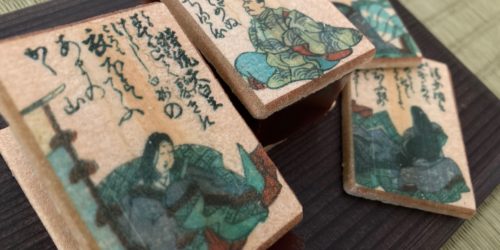“Izutsu” is a Noh play based on the mercy of the woman
I think that the ultimate level of love may be plenteous in mercy.
Once upon a time, Narihira kept a mistress, and he often visited her.
Narihira’s wife already knew about that, but she didn’t complain at all.
Narihira felt suspicious about it.
Then, one night, he pretended to visit his mistress, and he was checking on his wife in the shadows.
He was surprised.
His wife prayed that he would be able to reach his mistress’s house safely on a dark mountain path at night.
She always prayed for his safety.
Narihira stopped visiting his mistress after that.
Possessive jealousy focuses on love.
It is human nature.
But she didn’t have it.
Her feelings toward her husband were just like caritas.
“Izutsu” is a Noh play based on similar emotions.

This major Noh play, which the majority of Japanese people don’t know about, has been performed for 600 years.
Its story is simple.
Long after her death, her ghost appeared in front of a traveling monk, and she performed a Noh dance while longing for the old days.
For your information, her and Narihira were childhood friends.
At that time, they made a promise to marry each other.
In this Noh play, her inner psychological world was expressed as a beautiful dream.
Her feelings towards Narihira hadn’t changed since her childhood.
She remained a little girl, even when she got older.
Her innocent feelings seem to be eternal.
Her ghost shows that.
When the sound of a temple bell in the real world rang, her dream ended.
When I appreciated this Noh play, I felt like I was in the beautiful dream.
Human emotion is invisible, but it may make us dream.
Noh plays make good use of various invisible emotions and mentalities.





